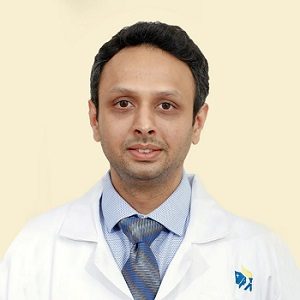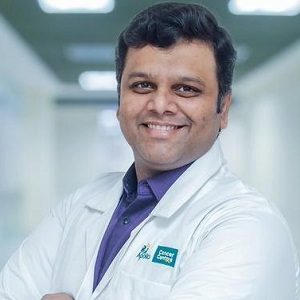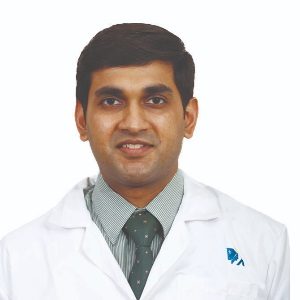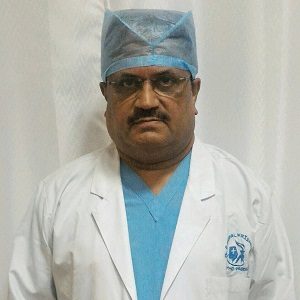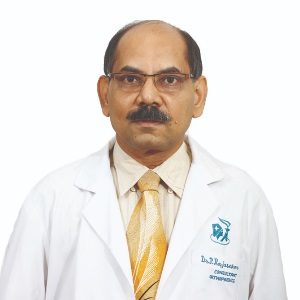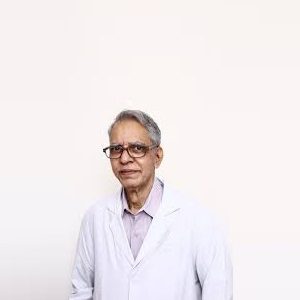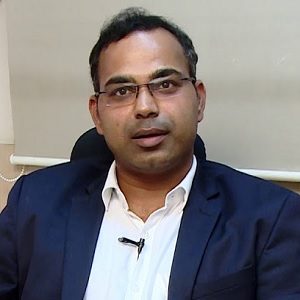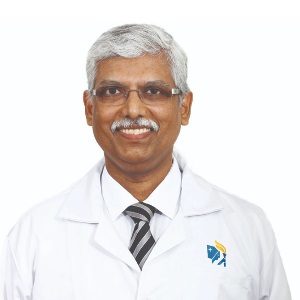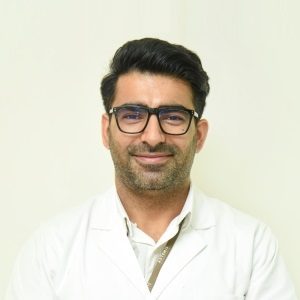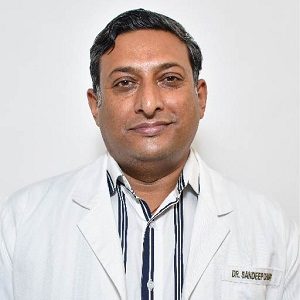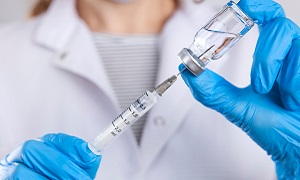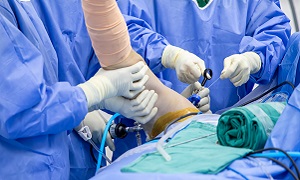Best Doctors in India for Frozen Shoulder Treatment
- Orthopedic Surgeon, Chennai, India
- Over 12 years’ experience
Profile Highlights:
- Dr. Kunal Patel consults on Orthopedics related problems at the Apollo hospitals of Chennai.
- He was part of the team which set Limca’s World record of Highest Joint Replacement Surgeries in March 2015.
- Dr. Kunal Patel is well-trained in Asia’s first and only Brainlab Arthroplasty Computer Navigation Orthopedic suite and has completed several fellowships related to his field.
- Orthopedic Surgeon and Spine Surgeon, Chennai, India
- Over 12 years’ experience
Profile Highlights:
- Dr. Madhu Kiran Yarlagadda is an orthopedics – consultant specializing in Joint and spine surgery and works at the Apollo hospitals of Chennai.
- Dr. Madhu Kiran Yarlagadda’s team carried out Robotic Spine Surgery for the first time in South-East Asia and performed Endoscopic Transforaminal Spine Surgery in Chennai.
- He treats spine diseases and has the facilities and expertise to perform robotic spine surgery. Along with that, he treats patients with joint and other orthopedic issues.
- Orthopedic Surgeon, Chennai, India
- Over 16 years’ experience
Profile Highlights:
- Dr. Arun Kannan is a well-known joint replacement surgeon at the Apollo Hospitals, Chennai.
- In his 16 years of experience doing joint surgeries and treating orthopedic issues, Dr. Arun Kannan has worked in the US as well as India and has gained enough trust and recognition from his patients.
- He has been excellent in his academics as well as practice because of which he received prizes and appreciation in both.
- Orthopedic Surgeon, Chennai, India
- Over 40 years’ experience
Profile Highlights:
- An Orthopedic doctor by profile, Dr. Gopala Krishnan has around 40 years of experience in his field.
- After his initial studies in medicine in Chennai, Dr. Gopala Krishnan moved to the US to pursue M.Ch in Orthopedics in 1984.
- His experience and dedication have helped him gain recognition in the field and build trust among patients.
- Orthopedic Surgeon, Chennai, India
- Over 24 years’ experience
Profile Highlights:
- Dr. Rajasekar P is an experienced orthopedist with 24+ years of experience.
- He treats and consults patients with problems with Joints, fractures, osteoporosis, Spine injuries, etc.
- He is an MBBS and DNB qualified doctor and practices at Apollo hospitals of Chennai.
- Orthopedic Surgeon, Chennai, India
- Over 50 years’ experience
Profile Highlights:
- Dr. Uma Chandran S specializes in orthopedics and is a veteran surgeon at Apollo Hospitals of Chennai.
- He has spent more than 50 years in the field of orthopedics and is believed to be one of the best orthopedists in Chennai.
- He is also known for his expertise in bone replacement surgery, spine movement, fracture treatment, etc.
- Spine Surgeon and Orthopaedic Surgeon, Chennai, India
- Over 18 years’ experience
Profile Highlights:
- Dr. Muralidharan Venkatesan is a consultant in spine surgery from Chennai.
- He provides comprehensive cervical (neck), thoracic (upper back), and lumbosacral (lower back) conditions treatment.
- Dr. Venkatesan pursued MBBS, MRCS, and a fellowship FRCS and shifted his specialization to spinal surgery.
- Dr. Venkatesan has his papers published in several journals.
- Orthopedic Surgeon and Spine Surgeon, Chennai, India
- Over 23 years’ experience
Profile Highlights:
- Dr. Ravi Venkatesan is a spine surgery specialist from Chennai, Tamil Nadu.
- His experience in spine surgery, orthopedics, and spine deformity surgery date back nearly 23 years.
- Dr. Venkatesan has performed several surgeries and has been an active member of various orthopedics groups.
- Many organizations have recognized his service and have awarded him for his dedication.
- Orthopedic Surgeon, Gurugram, India
- Over 10 years’ experience
Profile Highlights:
- Irfan Banday is a brilliant young orthopedic surgeon with over 10 years of experience handling trauma surgeries and ortho problems.
- Irfan received Fellowship in Knee Arthroscopy and Arthroplasty and Shoulder and Upper Limb Arthroscopy, Arthroplasty & Reconstructive Surgery.
- He manages simple & complex fractures, Reconstructive Surgeries of the Knee, Shoulder, Upper limb, and complex tendon transfers.
- Orthopedic Surgeon, Gurugram, India
- Over 18 years’ experience
Profile Highlights:
- Sandeep Chauhan is one of the best orthopedic surgeons and an expert in managing complex fractures, even in children, soft tissue injuries, septic arthritis, and osteomyelitis.
- He performs fracture reconstructions; and arthroplasty procedures like surface replacements, cemented and un-cemented THR, Total Knee Replacement, musculoskeletal infections, UKA knee, hip, shoulder, & elbow replacements.
Best Hospitals in India for Frozen Shoulder Treatment
Frozen Shoulder
Frozen shoulder, also known as adhesive capsulitis, is a shoulder condition that causes pain in your shoulder as well as limits its range of motion. When the tissues in your shoulder joint become tighter and thicker, it can lead to the development of scar tissue. Therefore, your shoulder joint doesn’t get enough space for proper rotation. This condition generally occurs between the ages of 40 and 60.
Symptoms
If your shoulder begins to hurt, you can become aware of a frozen shoulder. You are forced to limit your movement because of the pain. As you move the shoulder less and less, the stiffness increases, and within some time, you find out that you are no longer able to move your shoulder like you once did. When this problem becomes severe, you can also have problems performing everyday tasks that involve shoulder movement.
Causes & risk factors
The bones, ligaments and tendons making up the shoulder joint are encased in a capsule of connective tissue. When this capsule thickens and tightens around the shoulder joint, the movement gets restricted.
Though doctors aren’t entirely sure which this occurs, the condition is more seen among people who have diabetes, or those who recently had to immobilize their shoulder for a long time, such as after a surgery, or an arm fracture.
There are certain risk factors that can increase your risk of developing a frozen shoulder.
- People who are above the age of 40, especially women, are generally more likely to have this condition.
- People suffering from prolonged immobility or reduced mobility of the shoulder are also at a high risk of having this condition. Immobility can be the result of several factors, such as broken arm, stroke, rotator cuff injury, or recovery from surgery.
- People having certain diseases including diabetes, tuberculosis, cardiovascular disease, overactive thyroid, an underactive thyroid, and Parkinson’s disease are also more likely to develop this condition.
Diagnosis
During the physical exam, first, your doctor might ask you to move in certain ways in order to check your pain and evaluate your range of motion. Your doctor is next likely going to ask you to relax your muscle, while he/she moves your arm.
Sometimes, your doctor might also inject your shoulder with a numbing medication, so that he/she can determine your passive and active range of motion.
Frozen shoulder can also be diagnosed with signs and symptoms alone. However, your doctor might suggest imaging tests, such as MRI or X-rays, to rule out any other problems.
Treatment options
Most of the treatments for frozen shoulder involves controlling the pain and preserving as much range of motion as possible.
Therapy
Medications
Your doctor might also recommend you over-the-counter pain relievers to deal with the pain and inflammation of the frozen shoulder. Depending on your shoulder, yo ur doctor might also sometimes recommend pain-relieving and anti-inflammatory drugs.
Although most frozen shoulders get better within 12-18 months on their own, in cases where there are persistent symptoms, your doctor might suggest:
Steroid injections
Shoulder manipulation
In this procedure, you are first given a general anesthetic, so that you are unconscious and feel no pain. Then your doctor moves your shoulder joint in various directions, in order to loosen the tightened tissue.
Joint distension
Injecting sterile water into the joint capsule might help to stretch the tissue and also make it easier to move the joint.
Surgery
Surgery for frozen shoulder is performed quite rarely, but if nothing else is helping, then your doctor might recommend surgery for removing scar tissue and adhesions from inside your shoulder joint. Generally, this surgery is performed with lighted, and tubular instruments which are inserted through small incisions around your joint.
Acupuncture
Alternative medicine such as acupuncture is also known to help with this condition. In this method, fine needles are inserted in your skin at specific points, which remain in place for between 15 to 40 minutes. They may be moved or manipulated during this time. Most acupuncture treatments are generally painless.
Prevention
Early treatments generally keep the condition from getting worse. If you are having diabetes, then managing it properly can help you reduce the risk for a frozen shoulder.

